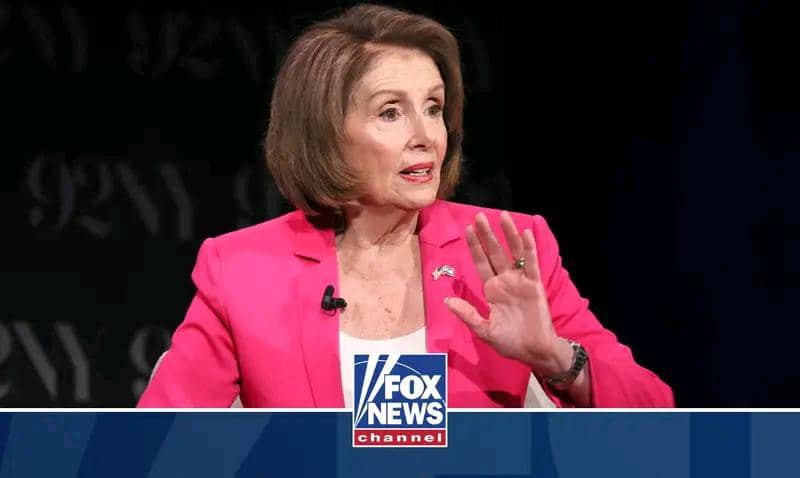By Burnett Munthali
The political rivalry between former President Donald Trump and former House Speaker Nancy Pelosi reached new heights this week after Pelosi questioned Trump’s mental fitness for another term. The Democratic lawmaker made her views clear, stating that Trump’s “brain is deteriorating” and claiming he is unfit to serve another four years in the White House. Trump’s campaign responded swiftly and fiercely, dismissing Pelosi’s comments as baseless and politically motivated.
In her recent remarks, Pelosi raised concerns over Trump’s ability to handle the demands of the presidency, suggesting that his cognitive abilities may have declined. She framed her argument around the responsibilities that come with the presidency, which require not only physical endurance but mental sharpness. Her comments echo longstanding criticisms from some Democratic leaders who have voiced concerns about Trump’s behavior and decision-making during his previous term.
Pelosi, a veteran in U.S. politics, has often been one of Trump’s most vocal opponents. Her statements regarding his mental health and suitability for office are not entirely new but have intensified as Trump pursues his bid for a return to the White House. She pointed to what she perceives as erratic behavior, highlighting incidents during Trump’s first term that she believes show a lack of stability.
The Trump campaign’s response was quick and forceful. Labeling Pelosi’s remarks as “desperate” and “out of touch,” the campaign portrayed her comments as an attempt to discredit Trump and undermine his 2024 campaign. Trump’s team underscored that Pelosi’s remarks are, in their view, part of a broader strategy by the Democratic Party to dissuade Americans from supporting Trump as he seeks re-election.
In a strongly worded statement, the Trump campaign asserted that Pelosi’s comments are evidence of the political establishment’s fear of Trump’s return. “Pelosi and the Democrats know that President Trump is the only candidate capable of defeating the failing Biden administration, and they’re terrified of the prospect,” the statement read. Trump’s team went further, claiming that Pelosi’s statements are an attack not only on Trump but on the millions of Americans who support him and his policies.
The campaign’s rebuttal took a defiant tone, emphasizing Trump’s resilience and ability to serve the American people despite criticism from political opponents. “Nancy Pelosi may wish for President Trump never to return, but the American people have a different idea,” the Trump team stated, underscoring Trump’s intention to push forward with his campaign despite opposition.
The campaign also highlighted Trump’s record as president, arguing that his policies were successful in strengthening the economy, securing the border, and restoring America’s global standing. The message was clear: Trump’s previous tenure demonstrated his fitness for office, and Pelosi’s remarks are an attempt to distract from his achievements and stoke fears about his age and cognitive health.
This exchange highlights a strategic dynamic in American politics: questioning the mental or physical fitness of a candidate has increasingly become a tactic to shape public perception. Pelosi’s remarks reflect the Democratic Party’s broader narrative of casting Trump as unfit, a tactic they have used with varying intensity throughout his political career. For Democrats, raising doubts about Trump’s fitness serves to highlight an alternative: a continuation of the Biden administration or the candidacy of another Democrat positioned as more stable and consistent.
The Trump campaign’s response, meanwhile, seeks to reframe these attacks as fear-driven attempts by Democrats to cling to power. By portraying Pelosi’s comments as out of touch and desperate, the campaign hopes to consolidate Trump’s base, galvanize supporters, and position Trump as a resilient outsider capable of challenging the political establishment.
As the 2024 election cycle heats up, exchanges like these signal the tenor of the upcoming presidential race. Both Trump’s supporters and detractors are preparing for a highly polarized contest, with each side framing the other as dangerous or unfit for the future of America. Pelosi’s comments, coupled with Trump’s forceful response, underscore the intensity of these political divisions.
This clash between Pelosi and Trump is a preview of the rhetoric likely to dominate the months ahead. Whether these arguments about fitness for office will influence voters remains to be seen. However, what is clear is that Trump’s campaign is ready to meet such criticism head-on, using it as fuel for his base as he aims for a return to the White House. The Trump campaign’s response—“never return”—reflects the confidence with which they plan to challenge detractors and galvanize supporters, framing Trump not as a relic of the past, but as a candidate who represents aresilient, determined vision for the future of America.




